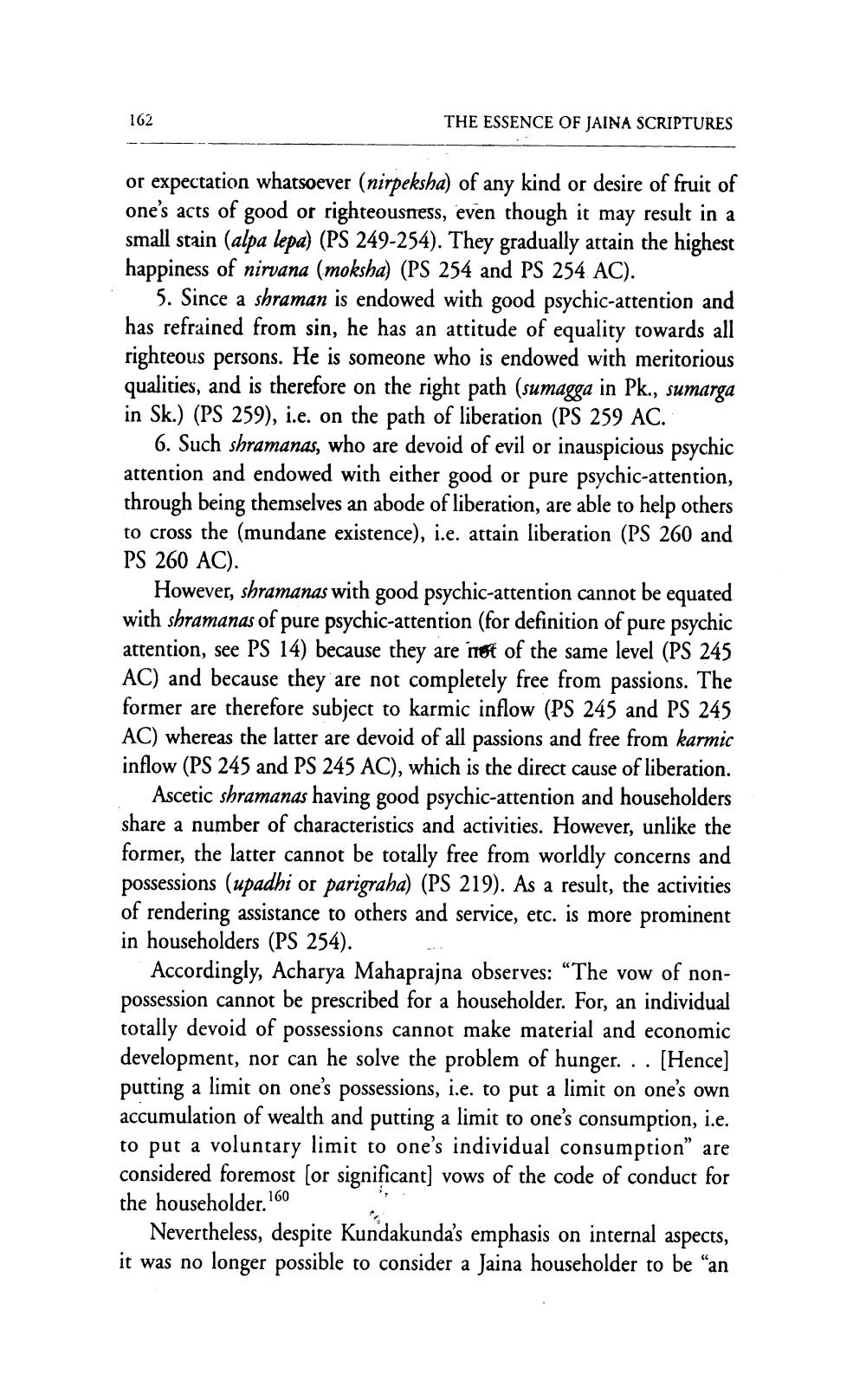________________
162
THE ESSENCE OF JAINA SCRIPTURES
or expectation whatsoever (nirpeksha) of any kind or desire of fruit of one's acts of good or righteousness, even though it may result in a small stain (alpa lepa) (PS 249-254). They gradually attain the highest happiness of nirvana (moksha) (PS 254 and PS 254 AC).
5. Since a shraman is endowed with good psychic-attention and has refrained from sin, he has an attitude of equality towards all righteous persons. He is someone who is endowed with meritorious qualities, and is therefore on the right path (sumagga in Pk., sumarga in Sk.) (PS 259), i.e. on the path of liberation (PS 259 AC.
6. Such shramanas, who are devoid of evil or inauspicious psychic attention and endowed with either good or pure psychic-attention, through being themselves an abode of liberation, are able to help others to cross the (mundane existence), i.e. attain liberation (PS 260 and PS 260 AC).
However, shramanas with good psychic-attention cannot be equated with shramanas of pure psychic-attention (for definition of pure psychic attention, see PS 14) because they are not of the same level (PS 245 AC) and because they are not completely free from passions. The former are therefore subject to karmic inflow (PS 245 and PS 245 AC) whereas the latter are devoid of all passions and free from karmic inflow (PS 245 and PS 245 AC), which is the direct cause of liberation.
Ascetic shramanas having good psychic-attention and householders share a number of characteristics and activities. However, unlike the former, the latter cannot be totally free from worldly concerns and possessions (upadhi or parigraha) (PS 219). As a result, the activities of rendering assistance to others and service, etc. is more prominent in householders (PS 254).
Accordingly, Acharya Mahaprajna observes: “The vow of nonpossession cannot be prescribed for a householder. For, an individual totally devoid of possessions cannot make material and economic development, nor can he solve the problem of hunger. . . (Hence] putting a limit on one's possessions, i.e. to put a limit on one's own accumulation of wealth and putting a limit to one's consumption, i.e. to put a voluntary limit to one's individual consumption” are considered foremost (or significant] vows of the code of conduct for the householder. 160
Nevertheless, despite Kundakunda’s emphasis on internal aspects, it was no longer possible to consider a Jaina householder to be “an




